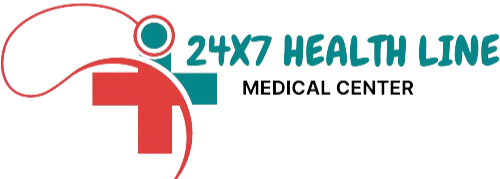In today’s digital age, accessing health information online has become increasingly frequent. Websites like 24x7healthline.com try to provide a variety of health-related resources, but it’s important to critically evaluate their reliability before trusting the information they present. This piece explores the key factors to consider when assessing the credibility of 24x7healthline.com, including material quality, sources, user experience, and overall reputation.
Understanding Health Information Sources
Before diving into the details of 24x7healthline.com, it’s crucial to understand what makes a health information website reliable. The following criteria are widely used to evaluate health resources:
Source Credibility: Reliable websites frequently cite peer-reviewed studies, reputable medical organizations, or expert opinions. They should provide citations for the information provided.
Qualifications of Authors: Information should ideally be written or reviewed by qualified healthcare workers, such as doctors, nurses, or specialists in the field.
Transparency: A trustworthy site will be transparent about its goal, ownership, and funding. It should provide clear contact information and a protection policy.
User Experience: A well-designed website that is simple to navigate usually indicates professionalism and attention to detail, which are important for delivering accurate information.
Up-to-Date Information: Health information changes frequently; therefore, reliable sites should regularly update their content to reflect the latest studies and guidelines.
User Reviews and Reputation: User experiences and reviews can provide information into the site’s reliability. Consider looking for independent reviews or scores.
Evaluating 24x7healthline.com
Now that we understand the criteria for a reliable health information source, let’s rate 24x7healthline.com based on these factors.
Content Quality:
Assessment: Review the articles and resources provided on the site. Are they well-researched, and do they provide a balanced view of the issues discussed? Look for indications that the content is based on scientific proof rather than anecdotal experiences.
Sources and citations:
Assessment: Check whether the website references reputable sources. Reliable health information should mention peer-reviewed studies, guidelines from recognized health organizations (like the World Health Organization or Centers for Disease Control and Prevention), or expert opinion.
Authors’ qualifications:
Assessment: Investigate who is writing the material. Are the authors healthcare professionals with proper credentials? Reliable health information should be created or reviewed by people with expertise in the relevant areas.
Transparency:
Assessment: Examine the site for information about its purpose, ownership, and funding sources. Does it provide clear contact information? A transparent website will often include an “About Us” section detailing these features.
User Experience:
Assessment: Navigate the website. Is it user-friendly and simple to find information? A well-organized site indicates a level of professionalism that can be a positive sign of reliability.
Up-to-Date Information:
Assessment: Check the dates on papers and resources. Are they current? A reliable health site should regularly update its content to reflect new results and guidelines.
User ratings and reputations:
Assessment: On independent sites, look for reviews of 24x7healthline.com. User feedback can show possible issues with the site’s reliability or effectiveness.
The part of health websites in patient education Health information websites like 24x7healthline.com play an important part in educating the public.
They can encourage individuals to take charge of their health by providing simple access to information about symptoms, treatments, and wellness strategies. However, the potential for misinformation exists, so users must exercise care.
Self-Diagnosis Risks: Users may misinterpret information and make health choices based on incomplete or inaccurate data. It is important to consult healthcare professionals for diagnosis and treatment.
Complementary Resource: Reliable health websites can serve as a valuable resource for individuals looking to understand their conditions better or explore treatment options, but they should not replace professional medical advice.
Encouraging Informed Decisions: When used wisely, health information websites can help people ask informed questions during medical consultations, leading to better healthcare outcomes.
Conclusion
Determining whether 24x7healthline.com is a reliable health information source requires careful evaluation of several key factors, including content quality, author qualifications, transparency, user experience, and the website’s general reputation.
While online health resources can be invaluable for education and awareness, it is important to approach them with a critical eye.
Before relying on any health information, consider consulting healthcare professionals to confirm its validity and applicability to your particular situation.
By combining reliable online resources with professional medical advice, individuals can make informed choices about their health and well-being. Always prioritize your health by seeking accurate information and expert advice.
